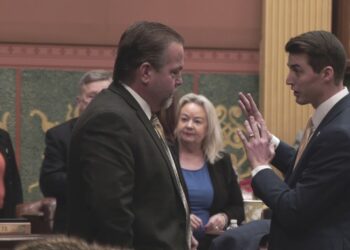WASHINGTON, D.C. – In the early hours Thursday morning, the House barely passed President Trump’s spending and tax agenda. It’s a big win for the Trump administration after countless hours of negotiations and meetings with fiscally conservative Republicans. But now it faces its next challenge: the US Senate.
After days of negotiations, House Republicans passed the President’s domestic agenda by just one vote
“The House has passed generational, truly nation-shaping legislation,” said Speaker Mike Johnson (R- LA), Speaker of the House following the floor vote.
“The GOP tax scam represents an assault on the economy, an assault on healthcare, an assault on nutritional assistance, an assault on tax fairness, and an assault on fiscal responsibility,” said Rep. Hakeem Jeffries (D- NY), House Minority Leader, during the debate.
Here’s a brief rundown of the bill:
The legislation would make the 2017 tax cuts permanent, claw back clean energy tax credits and moves forward with a temporary 500 dollar increase in the child tax credit through 2028. It also increases leasing of public lands for drilling, mining and logging, Bolsters border security and immigration enforcement and sends more money to the military.
It also makes major changes to reduce the cost of Medicaid, which helps lower-income people. To win over some House Republican hardliners, they enacted a strict work requirement for childless adults without disabilities to receive benefits. The legislation also scales back SNAP, which helps millions of low-income people with food assistance and makes additional changes for work requirements to receive benefits.
But this bill faces its next big challenge: Senate Republicans.
Some Senate Republicans have aired concerns that the bill will add trillions to the national debt. Others said they won’t support the house’s bill without debt ceiling adjustments.
“And borrowing this money just isn’t fiscally conservative,” said Sen. Rand Paul (R- KY). “I’ve told them I can support the package if they separate the debt ceiling and have a separate vote on that. I want nothing to do with that. I didn’t vote for the spending. I didn’t vote for the debt, and I’m not voting to make it easier on people who want to make government bigger.”
If this bill is restructured by the Senate, it could complicate the path for Speaker Johnson when it goes back over to the House once those revisions are made. We know some Republican hardliners are already telling Senators to not touch a thing in this bill, which is unlikely to happen.









